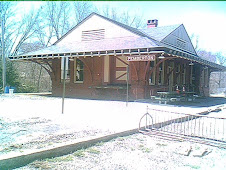Census: County farmland vanishing
By: DAVID LEVINSKY
Burlington County Times
Burlington County officials say preserving farmland and supporting local farmers is more important than ever in light of a new federal agricultural census that indicated the county lost nearly a quarter of its farmland over a recent five-year period.
Released Wednesday, the U.S. Department of Agriculture census shows Burlington County's total acreage of farmland dropped 23 percent from 111,237 in 2002 to 85,790 acres in 2007.
Total acreage of farmland decreased in 16 other New Jersey counties as well, but Burlington County's was the largest drop, according to the census.
Statewide, the total acreage of farmland decreased 9 percent from 805,682 acres in 2002 to 733,450 acres in 2007.
Burlington County Freeholder William Haines Jr., a cranberry farmer who oversees the county's Department of Resource Conservation, said the loss of farmland was further proof of the importance of the county's farmland preservation program.
The program uses money from a countywide dedicated tax to purchase easements from farmers that permanently protect their land from development. The farmers continue to own and operate the farms, but deed restrictions prevent the land from being used for anything but agriculture.
During the same five years measured in the census, the county preserved a total of 7,825 acres of farmland, officials said. Through last year, the county had preserved some 28,000 total acres.
"What this tells me is that we were right to start (preserving) years ago," Haines said about the census results. "We need to continue to be aggressive because the housing market will return. All this does is motivate me to work harder."
Despite the loss of acreage, the census showed the county remains a top producer of fruits, berries and other agricultural products.
The county's total acreage of soybeans ranked second in the state and its acreage of berries ranked second, according to the census.
The total market value of all agricultural products grown or raised in the county was $86.3 million, ranking the county fifth among the 21 New Jersey counties.
"County farmers don't have the massive land base to grow on, but they are still producing plenty with the land they have," said Ray Samulis, county agricultural agent with the Rutgers Cooperative Extension.
He said county farmers are growing diverse and highly valued crops that are in demand. Many county farms have also developed agri-tourism attractions such as corn mazes, markets and farm tours as a new source of revenue.
The census calculated that county farmers earned $1.9 million in revenue from agri-tourism in 2007, up from $1.09 million in 2002.
Samulis said close to half the full-time farmers in the county now sell products at farm markets or their own farm stands.
Haines said the county is home to a strong group of skilled farmers who want to keep the industry alive.
"We've got people who know how to farm and will do it," Haines said. "That's why land preservation is so important. We need to maintain as large a land base as we can."
He said non-farmers benefit from the farmland preservation because farms generate tax revenue but require few costly public services.
Email: dlevinsky@phillyBurbs.com
February 06, 2009 03:20 AM




